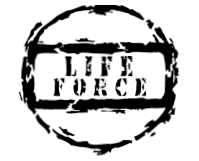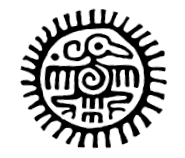Week of November 7th, 2024
Kinds of Darkness
Varieties of darkness include:* pathology and evil;
* the mysterious unknown—the source of the future;
* the shadowy, unripe parts of our psyches that are on their way to becoming more interesting and useful but are still awkward and inarticulate.
Hypothesis: We can help prevent outbreaks of the first kind of darkness by developing a vigorous personal relationship with the second and third types.
+
Rebecca Solnit writes: “The future is dark, which is the best thing the future can be, I think. It’s an extraordinary declaration, asserting that the unknown need not be turned into the known through false divination or the projection of grim political or ideological narratives; it’s a celebration of darkness, willing – as that 'I think' indicates—to be uncertain even about its own assertion.
"Most people are afraid of the dark. Literally when it comes to children, while many adults fear, above all, the darkness that is the unknown, the unseeable, the obscure. And yet the night in which distinctions and definitions cannot be readily made is the same night in which love is made, in which things merge, change, become enchanted, aroused, impregnated, possessed, released, renewed.”
+
Jody Woodlands adds: "And darkness is nighttime, and underground, and the space between the stars: the simple, restful, beautiful, is-ness of the physical world. Shade and shadows: how I need them especially in summer!
+
Tonia Rose adds: "Darkness is the soil and the soul: the deep places of growth and life."

WEEKLY NEWSLETTER
Here's a link to my free weekly email newsletter, featuring the Free Will Astrology horoscopes, plus a celebratory array of tender rants, lyrical excitements, poetic philosophy, and joyous adventures in consciousness. It arrives every Tuesday morning by 7:30 am.
Sign up here for your free subscription.

THE SPIRITUAL POWER OF PLAY
"Approfondement is a French word that means 'playing easily in the deep.'"
—Tom Robbins
+
"We are fully human only while playing, and we play only when we are human in the truest sense of the word."
—Rudolf Steiner
+
"The ancient Greeks knew that learning comes from playing," writes Roger von Oech in his book A Whack on the Side of the Head: How You Can Be More Creative. Their word for education, paideia, he says, was close to their word for play, paidia.
+
Psychiatrist Stuart Brown has proposed this simple definition: "Play is spontaneous behavior that has no clear-cut goal and does not conform to a stereotypical pattern. The purpose of play is simply play itself; it appears to be pleasurable."
In a study of 26 convicted murderers, Brown discovered that as children, most of them had suffered either "from the absence of play or abnormal play like bullying, sadism, extreme teasing, or cruelty to animals."
Brown's work led him to explore the biological roots of play. "New and exciting studies of the brain, evolution, and animal behavior," he wrote, "suggest that play may be as important to life—for us and other animals—as sleeping and dreaming."
—Stuart L. Brown, "Animals at Play"
+
"How much courage is needed
to play forever,
as the ravines play,
as the river plays."
—Boris Pasternak, "Bacchanalia"
+
"You can't know fire unless you play with it," says Mark Finney, a math whiz who develops computer models for fighting forest fires.




